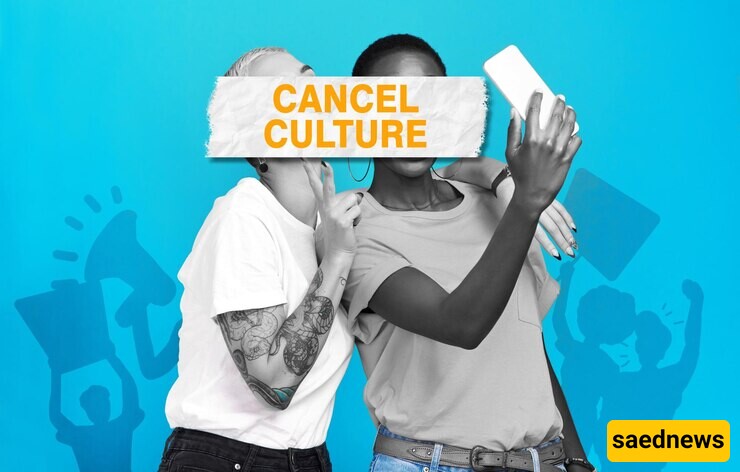SAEDNEWS: Cancel culture has transformed the way society holds public figures accountable, often carrying serious consequences for their careers and reputations. Exploring its origins, effects, and wider implications helps to understand this complex and controversial phenomenon.

According to SAEDNEWS: cancel culture refers to the practice of boycotting or publicly shaming individuals—typically celebrities, influencers, or public figures—due to controversial or offensive behavior. Enabled by social media, this phenomenon has grown into a powerful tool for accountability. Yet, its implications are far-reaching, often sparking debates about justice, free speech, and the balance between accountability and forgiveness.

Cancel culture emerged alongside the rise of social media platforms, where users can amplify voices, share opinions, and hold powerful figures accountable. Though its roots trace back to public boycotts and call-outs, it gained prominence in the 2010s as viral hashtags and digital activism became influential.
Initially celebrated for exposing harmful behavior, cancel culture soon evolved into a double-edged sword, accused of promoting mob mentality and harsh penalties without due process.
Public figures often face career repercussions after being canceled, ranging from lost endorsements to terminated contracts. For example, actors, musicians, or athletes accused of inappropriate behavior may see their projects shelved or future opportunities vanish. The internet’s permanence ensures that controversies follow individuals long after the initial backlash. Even if allegations are unproven, the damage to a celebrity’s public image can be irreversible. For many, the psychological toll of being canceled is severe. Facing mass scrutiny, public humiliation, and social isolation can lead to anxiety, depression, or withdrawal from public life.

Lack of Nuance
One common criticism is the lack of context or room for growth. Critics argue that cancel culture often disregards the complexity of human behavior and the potential for personal change.
Mob Mentality
Social media magnifies groupthink, where individuals pile on criticism without fully understanding the facts. This creates an environment of fear, discouraging open dialogue and dissenting opinions.
Erosion of Due Process
Unlike legal proceedings, cancel culture often operates without evidence, leaving little room for defense or redemption. Accusations alone can lead to career-ending consequences, regardless of their validity.
Despite its drawbacks, cancel culture has been instrumental in bringing attention to systemic issues such as racism, sexism, and abuse. It has empowered marginalized voices and forced industries to confront toxic behaviors.
Examples of Positive Impact
The #MeToo movement highlighted widespread harassment, leading to significant cultural shifts and policy reforms.
High-profile cancellations have prompted industries to adopt stricter ethical guidelines and accountability measures.
For some, redemption is possible through genuine accountability and visible efforts to make amends. Celebrities who publicly acknowledge their mistakes and take corrective action often find paths to reconciliation. In many cases, time allows the public to reassess their judgment. Figures who demonstrate sustained positive behavior may regain their reputation and career standing.
Cancel culture has sparked debates about free speech, with some arguing it silences unpopular or controversial opinions. Others see it as a necessary check on harmful rhetoric. The phenomenon reflects a societal shift toward holding individuals accountable for their actions. It underscores the power of collective voices in demanding change but raises questions about fairness and proportionality.
Cancel culture is a complex and polarizing force, capable of both justice and harm. While it empowers society to confront wrongdoing, it also highlights the need for compassion, due process, and opportunities for redemption. As this phenomenon continues to evolve, its impact on public discourse and personal accountability will remain a focal point of cultural debate.

